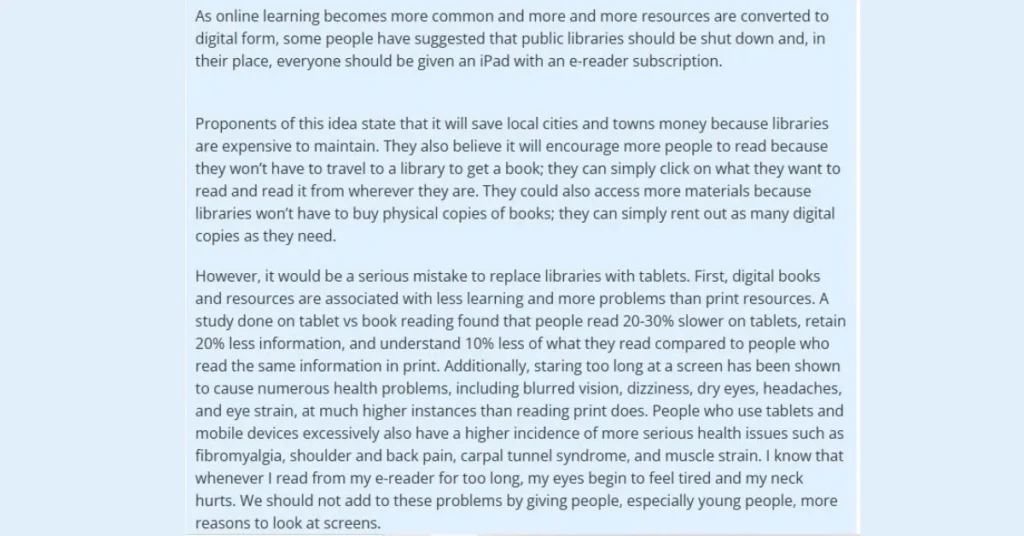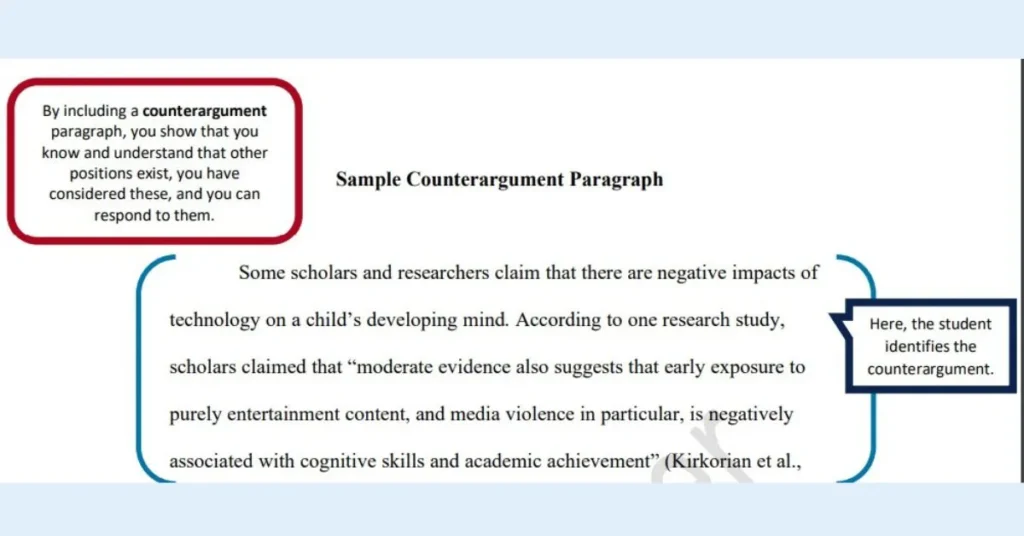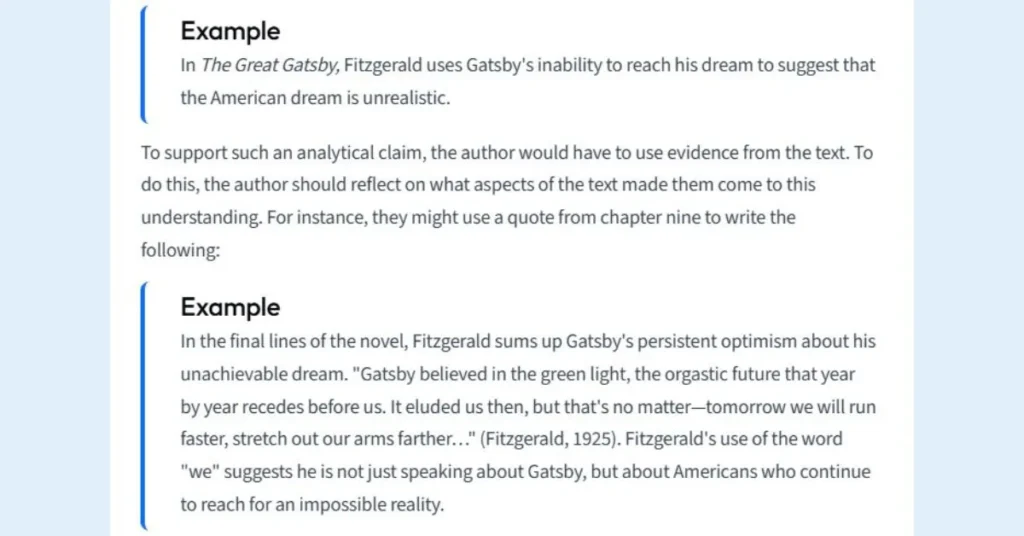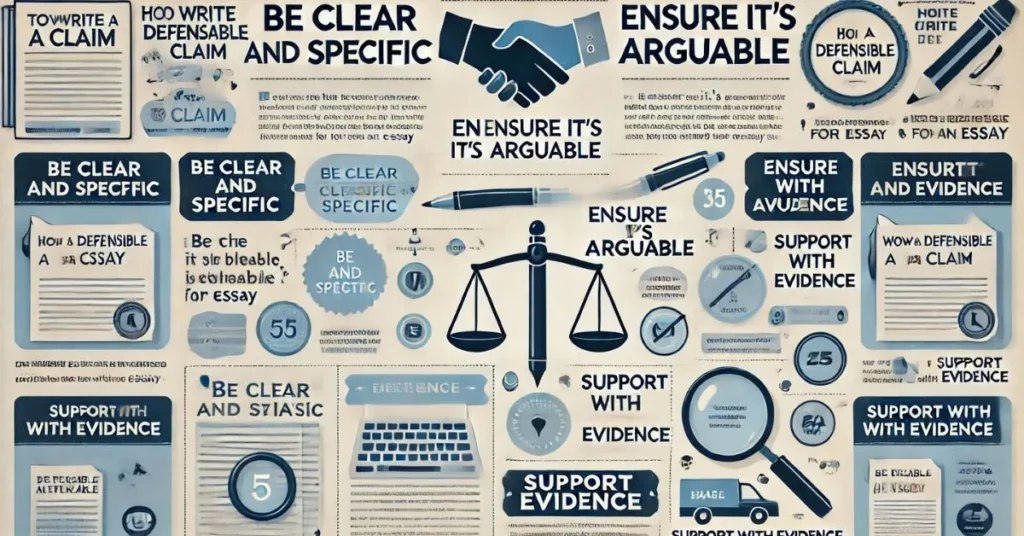A defensible claim is a key element in writing a strong and persuasive essay. It is a clear, concise statement that presents your position on a particular issue and sets the stage for the rest of your argument. A defensible claim goes beyond simply stating an opinion. It asserts a perspective that can be supported with evidence and logic, making it strong and credible.
To create a defensible claim, you must ensure it is specific, debatable, and supported by facts or expert opinions. Moreover, it should be able to withstand opposing viewpoints, as a successful essay anticipates counterarguments and addresses them effectively.
In this article, we will explore the essential components of a defensible claim and provide insights into how to craft one that serves as the backbone of your essay.
Let’s start by looking at some ways to enhance your paper.
Contents
Top 8 Tips to Write a Defensible Claim in an Essay
The University of Iowa defines a claim as the main point of your essay or paragraph, often referred to as a thesis statement or argument. It should ideally appear in the first line of your essay to set the tone and establish focus. Writing a defensible claim for a document is like building the foundation of a compelling story.
A strong claim captivates your audience, sparking curiosity and motivating them to explore your narrative further. However, many students struggle to create a solid claim that aligns seamlessly with their essay’s purpose. This challenge often leads them to contact essay pros for expertly refined papers.
Yet, writing your claim can be a rewarding process, especially when it reflects your unique perspective and experiences. By employing the strategies below, you can add depth and authenticity to your narrative, transforming it into a meaningful journey of self-expression.
1. Be Clear and Specific
A strong, defensible claim for an essay requires precision and clarity to support it as a good foundation for composing a paper. Clearly stating your position eliminates the possibility of misunderstanding or vagueness because it explains your points clearly.
Additionally, being specific ensures that your viewpoints concentrate on one aspect of the subject, which makes its defence easier with focused arguments and data. You can make a clear and compelling argument that will guide your readers and defend your thesis by avoiding vague or too general comments.
Key Takeaways to be Considered
- State your stance clearly in one or two sentences.
- Focus on a particular, unique aspect of the topic.
- Avoid generalisations and broad statements.
- Use clear language to avoid ambiguity.
- Make sure your claim is related directly to the essay question or topic.
You lay the groundwork for a logical and compelling argument throughout your essay by being clear and specific.
2. Ensure It’s Arguable
Ensuring that your claim is arguable is a vital component of writing a defensible claim for an essay. Rather than stating a widely accepted fact or an opinion, an arguable assertion presents a viewpoint or position that provokes discussion and argument.
For instance, “The government should focus on renewable energy to fight climate change” takes a position with which others may or may not agree, whereas “Climate change is real” is a fact that cannot be denied. The core of your essay is an arguable idea, which can be made with facts, analysis, and logic to position a claim and support it with facts, thereby promoting both critical thinking from you and your readers on the credibility of your arguments.
Moreover, a well-written debatable assertion makes your essay better by demonstrating your ability to present challenging problems and a close, thoughtful argument. You should construct a foundation for a persuasive argument that is compelling and mighty when you ensure your statement has real debatability.

Image Source: PrepScholar
3. Support with Evidence
The strength of the evidence to support a defensible claim for an essay determines its defensibility. You must provide credible data to support your argument if you want it to be believable and convincing. There are various types of evidence, such as factual information, research studies, professional judgments, historical instances, and real case studies.
In addition, by providing proof for your assertion, you prove that it adds strength to your argument overall. You must ensure that the evidence you use supports your claim and is credible and relevant. Evidence that is properly referenced and explained not only enhances the quality of your essay but also shows that you know the subject inside out and instils confidence in your readers.
Essential Factors to Bear in Mind
- Use statistics, research findings, or factual information to support your claim.
- To make your argument stronger, employ credible sources or professional opinions.
- Provide historical or real-life examples to support your argument.
- Ensure that all evidence supports your argument and is directly related to your claim.
To maintain academic integrity and reputation, properly cite your sources.
4. Focus on a Narrow Topic
A defensible claim for an essay necessitates concentrating on a subject because this keeps your work efficient and targeted. A claim that is too vague or broad can weaken your case and make it difficult to provide enough evidence or in-depth research.
Example
Instead of saying, “Technology has changed education,” a more specific claim would be, “The inclusion of virtual reality in classrooms increases student interest in STEM subjects.” This narrower claim lets you focus on a specific aspect of the topic, thus making your argument stronger and easier to defend.
A well-defined topic will also help you avoid deviations and keep your article coherent. You can target your evidence and make a stronger case, engaging your readers in a more meaningful way. Hence, focusing in this manner will give clarity to the argument and signify a more thoughtful analysis of complex issues.
5. Consider Counterarguments
A defensible claim for an essay is reached by taking into account the counterarguments when composing a paper. You can, therefore, foresee and handle such objections by making counterarguments that help strengthen and convince your position.
Thus, when adding counterarguments to your essay, remember the following points:
- Identify any potential objections
- Respond directly to rebuttals
- Use refutations to support your claim.
- Show that you have considered other perspectives.
- When presenting counterarguments, use transition words.
- Do not dismiss counterarguments without considering them.

Image Source: UAGC Writing Center
6. Stay Relevant to the Thesis
To keep your argument coherent and clear, a valid claim must be closely related to the premise of your essay. Every defensible claim for an essay must either directly support or extend your thesis statement, which is the central idea of your paper.
Claims that are not relevant will confuse readers and undermine the overall effect of your argument. You must:
- Ensure that your claim directly supports your essay’s central premise.
- Avoid introducing concepts that do not support the main point of your essay.
- For coherence, connect all of the facts and supporting arguments to the thesis.
- If your claim starts to go off track from the thesis, revise it.
- Use transitions and links to clearly show how your assertion relates to the thesis.
You may write a targeted, convincing essay that successfully conveys your thoughts and connects with your readers by being true to the thesis.
7. Use Balanced Language
A defensible claim for an essay needs to be in balanced language since it makes your argument seem reasonable, well-considered, and reliable. You must avoid the overuse of emotional or sensational words that might offend the readers or challenge your authority on the subject. Moreover, you should employ balanced language to highlight different viewpoints, which supports and enhances your argument.
Example
A better statement would be, “The government should think of targeted reforms to deal with the shortcomings in the current education system,” instead of, “The government must immediately overhaul the education system because it’s a complete failure.”
Effective language balance enhances the persuasiveness of your argument, makes you a credible writer, and enhances the essay’s impact.
8. Keep it Focused
An essay must be focused on holding a defensible argument. A focused argument is clear, coherent, and concise so that the reader can easily trace the reasoning and understand the central idea. A good thesis statement also sets the tone for the rest of the essay by controlling the writer’s analysis and selection of supporting evidence. In addition, writers can create a more convincing argument by avoiding ambiguous or difficult-to-prove assertions and maintaining the focus of the claim.
A concentrated claim should have the following crucial elements: a clear statement of the key argument or point.
- Avoids unnecessary words or phrases
- Speaks in plain, short language for easy understanding.
- In line with the theme and purpose of the essay
- Supported by reason and evidence.
- Offers a unique perspective or insight.
However, students in need of greater help acquire assistance from the best essay writing companies in the UK. It gives them knowledgeable advice on polishing their arguments to ensure that their writing is effective and well-structured. With such services, you boost your self-esteem and can then pen an interesting and winning paper.
Examples of a Defensible Claim for an Essay
Literary analysis essay writers argue about literary work and support those arguments with evidence from the same work. Review an example of a defensible claim in an essay given below:

Image Source: Vaia
Final Thought
The ability to defend an argument is very important to make your essay coherent and convincing. You build a foundation for your argument by taking care that your claim has precision, debatableness, and relevant data. You should anticipate objections and skillfully use them to strengthen a defensible claim for an essay.
Furthermore, you may employ the above strategies to improve your writing skills and produce a more multifaceted perspective. This may sharpen your critical thinking. You must put them into practice now, and your writing will become an instrument of insight and persuasion.

